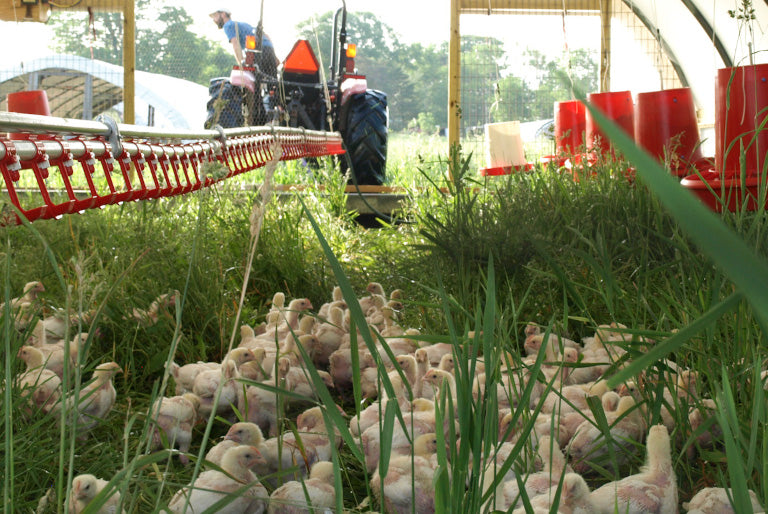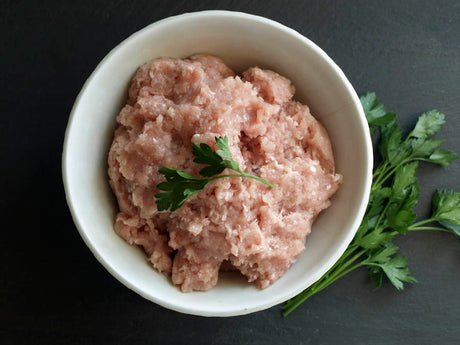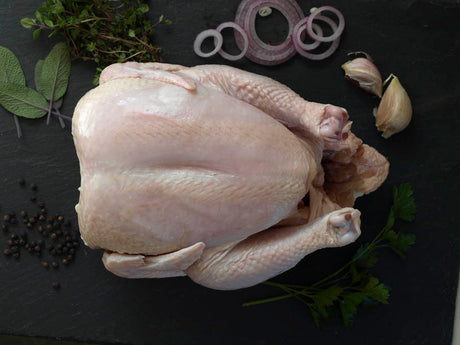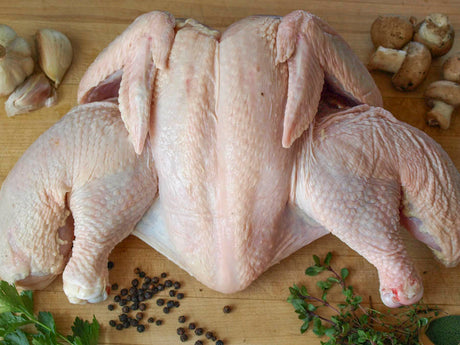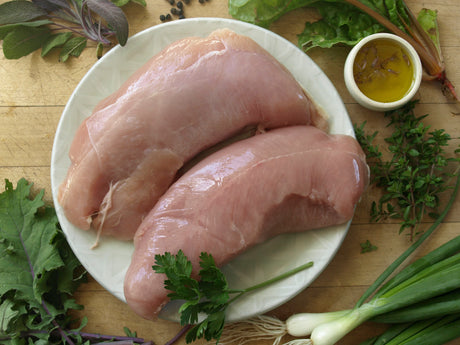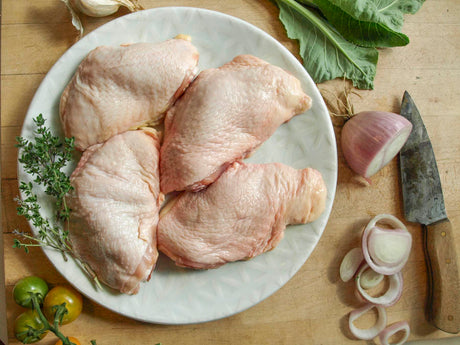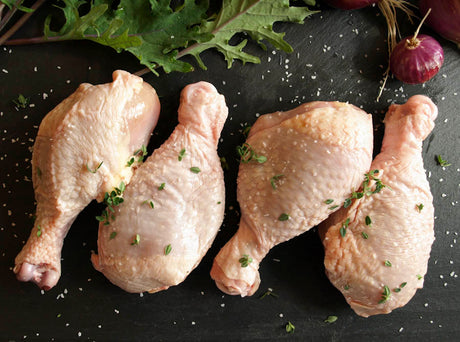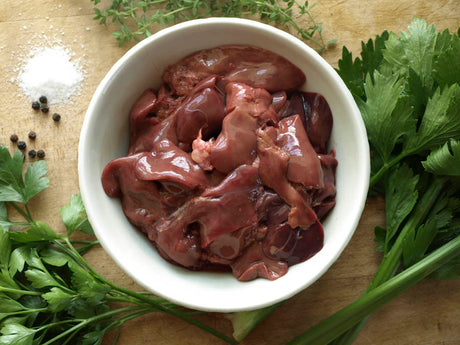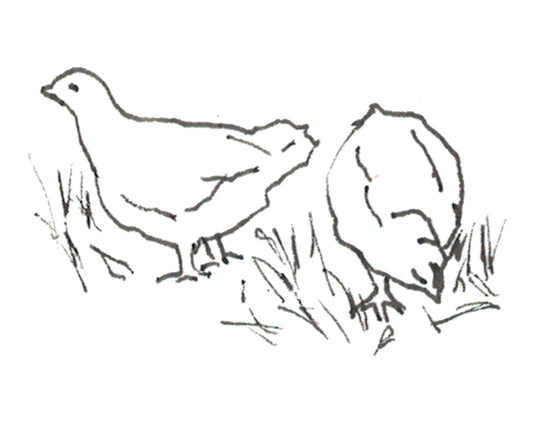
Different species eat different foods
The most basic reason is that cows and chickens are very different animals. Cows are grazing specialists. Their bodies is designed to eat grass, and lots of it. They have a four chambered stomach with a capacity to process amazing amounts of forage. They go through life eating as much as they can as fast as they can. Chickens, on the other hand, are much pickier. A chicken is remarkably good at spotting the tastiest morsels, whether leaf, root, seed, grain, or insect, and snapping it up.
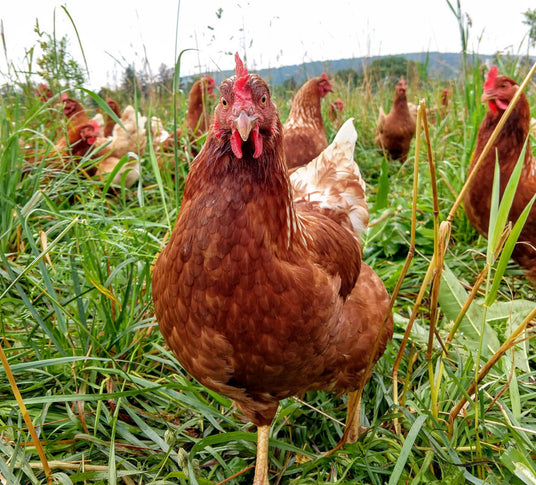
Meat chickens and egg chickens are different
The ancestor of the modern chicken still exists. The junglefowl of southeast Asia is a 2-3 pound wild bird that lives, unsurprisingly, in the jungle, where it eats seeds, fruit, roots, and insects. It is not especially meaty, and it does not lay an especially large number of eggs. But since being domesticated some 8000 years ago hundreds of chicken breeds have developed from the junglefowl. Many have a distinctive look, but almost all either produce lots of eggs or quickly grow to efficiently produce meat. So a modern hen will lay about 300 eggs in a year, while a modern meat chicken will grow to market weight in just a couple months. These remarkable capabilities come with increased metabolic demands. Even a junglefowl does not live on grass alone. The fact that the chickens that have descended from it grow so much faster or produce so many more eggs means they are even less capable of thriving on only grass.
So chickens need a reliable source of balanced, chicken-appropriate feed to be healthy. To lay lots of eggs a hen needs plenty of protein, calcium, and more. Meat chickens have similarly particular nutritional needs. Raising chickens requires a feed program, full stop. Anyone who claims to raise chickens on grass alone, like grass fed cows or sheep, is lying to you.
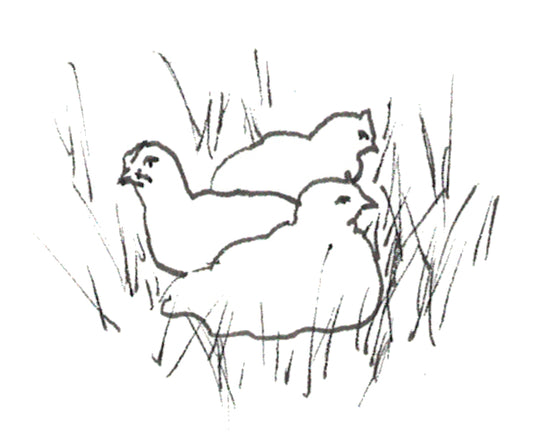
Grain free chicken
Unlike grass fed chicken, I am not prepared to dismiss the idea of grain free chicken. In fact, I'm sure it's possible, with a caveat. Grain-based rations are well understood; so many chickens have been raised with grain making up a significant part of their diet for so long that feeding chickens on grain really is a science. While there are reasonable candidates to replace things like corn and soy in a chicken's diet, they are not widely used, so they would require a bit of experimentation to dial in.
That said, some combination of sunflower and flax seed, perhaps with molasses used for energy could work. Fish meal is an excellent source of available protein, so I'm confident it would be a more than adequate replacement for soy, but I worry it would impart bad flavors to the meat or eggs. Also, while there are problems with how soy is farmed, the production of fish meal is far worse for the environment. I'm interested in the possibility of farmed insects as a viable protein alternative for chickens, and there's interesting research on duckweed as a protein source.
I'm hoping that in the coming years a reliable, high-quality, affordable, and environmentally friendly alternative to soy will emerge.
Truly Pastured, Organic-fed Chicken
View all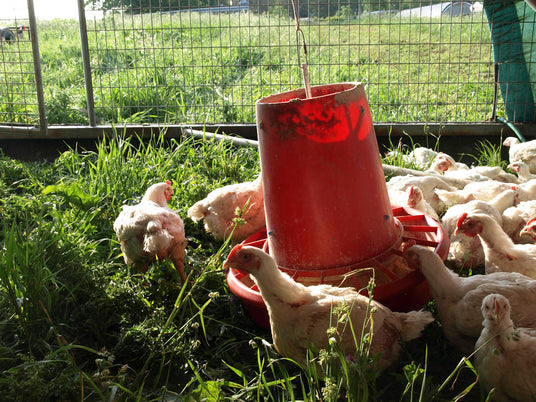
Conclusion
There's a natural tendency, particular in areas of food and purity, to want to go to extremes, whether that's vegan or carnivore, thirty bananas a day or keto, or grass fed chicken for that matter. But in farming and in life it often makes sense to look for balance. Chickens are living creatures with particular needs and instincts, which is why factory farming, which crowds them by the tens of thousands into huge barns, with no grass or sunlight or fresh air, is so terrible. But trying to make them live on an unsuitable diet like grass alone isn't any better. The right thing to do is to raise them in a context where they can scratch and peck while also having a reliable source of suitable food.

